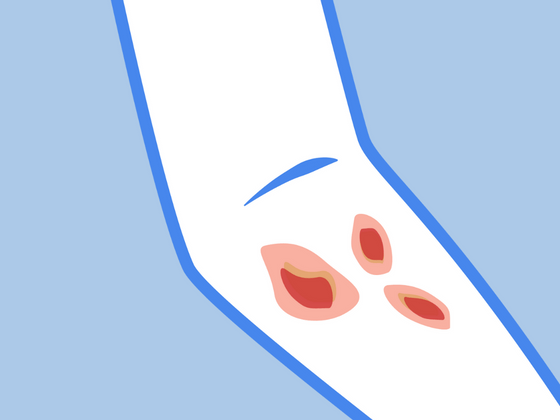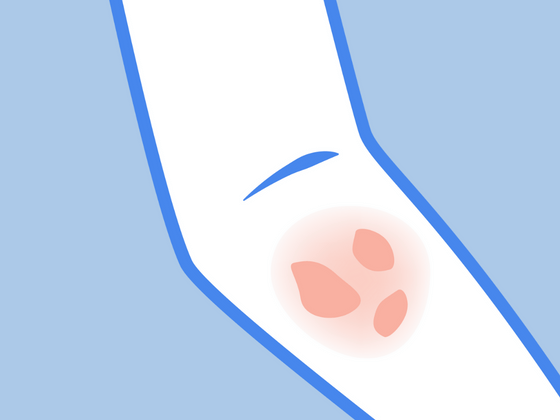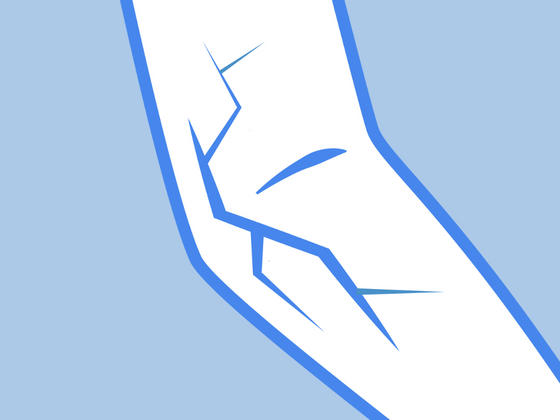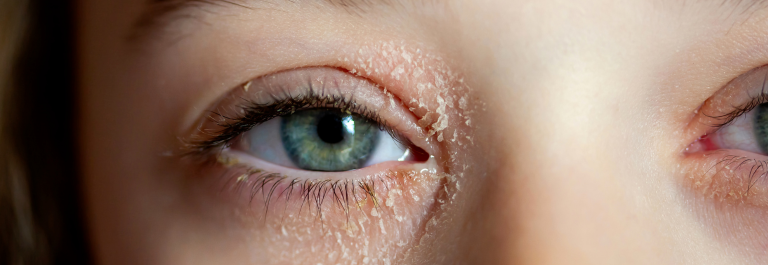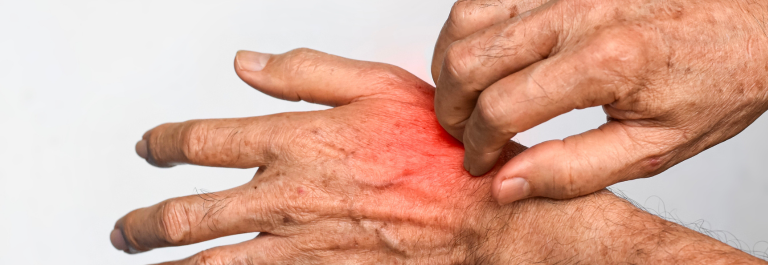Eczema, particularly atopic dermatitis, is a chronic inflammatory skin condition that affects millions of people worldwide. While the hallmark symptoms of eczema are well-known, including itching, redness, and skin irritation, a less discussed but equally significant symptom is fatigue. So, is fatigue linked to eczema? The answer is a resounding yes, and understanding this connection is crucial for managing the overall health and well-being of those affected.
In this blog, we will be tackling the challenge of managing fatigue caused by eczema, covering everything you need to know about:
-
The link between eczema and fatigue
-
How sleep disturbances from eczema impact daily life
-
Effective strategies to manage eczema-related fatigue
Read on to learn more about how to alleviate fatigue, improve your quality of life, and get a good night's sleep, despite living with eczema.
The Link Between Eczema and Fatigue
Eczema Symptoms and Sleep Disturbances
One of the primary ways eczema contributes to fatigue is through sleep disturbances. The intense itching associated with eczema often becomes more pronounced at night, leading to frequent waking and difficulty falling asleep. This disturbed sleep significantly impacts the quality of life and can result in chronic sleep deprivation. According to a study by Silverberg JI, individuals with atopic dermatitis are more likely to suffer from sleep disorders compared to those without the condition.
The Role of Stress Hormones and Body Temperature
Chronic itching and scratching can lead to an increase in stress hormones like cortisol. Elevated cortisol levels can disrupt sleep patterns and contribute to a vicious cycle of sleep disturbance and fatigue. Additionally, eczema can affect body temperature regulation, further complicating the ability to maintain a good night's sleep. Different temperatures in the sleep environment can exacerbate eczema symptoms, leading to increased itching and discomfort.
Systemic Disease and Immune System Impact
Eczema is not just a skin condition; it's a systemic disease that impacts the entire body. The immune system's overreaction, which causes eczema, can also lead to systemic inflammation and fatigue. People with severe atopic dermatitis or severe eczema are at an increased risk of developing other allergic diseases, such as asthma and hay fever, which can further contribute to fatigue.
Eczema and Mental Health
Living with eczema can not only affect sleep but also take a toll on mental health. The persistent itch, visible skin infections, and societal stigma can lead to anxiety, depression, and social isolation. These mental health issues can, in turn, cause or exacerbate fatigue. Patient-reported outcomes often highlight the psychological burden of eczema, demonstrating a clear link between mental health and the experience of fatigue in those with the condition.
Impact on Daily Life and Work
The fatigue caused by eczema can significantly affect daily life and work performance. Daytime fatigue can lead to difficulties in concentration, memory problems, and decreased productivity. This can increase the risk of workplace accidents and overall poor job performance, further impacting the individual's life.
Managing Eczema-Related Fatigue
Improving Sleep Quality
Improving sleep quality is essential for managing eczema-related fatigue. Good sleep hygiene practices, such as maintaining a regular bedtime, creating a comfortable sleep environment, and avoiding heavy meals before bed, can help. Wearing breathable fabrics and keeping the bedroom at a comfortable temperature can also reduce nighttime itching and improve sleep. Here are a few of our top clothing recommendations for kids and adults:
Remedywear Long Shirt for Adults
One-Piece Footed Pajama for Kids
ScratchSleeves Baby Eczema Pajamas
Eczema-Friendly Bedding
The right bedding can make all the difference for sleeping with eczema. Organic, chemical-free fabrics help reduce irritation, while breathable, hypoallergenic materials like cotton wick away moisture and minimize overheating—common triggers for flare-ups. Choosing naturally dyed, toxin-free sheets and pillowcases creates a soothing sleep environment, allowing sensitive skin to heal overnight.
Self-Care and Stress Management
For people with eczema, practicing self-care and stress management techniques, such as deep breathing, mindfulness, and listening to soothing music, can help reduce the impact of stress hormones on sleep. Managing stress is crucial in breaking the vicious cycle of eczema flare-ups and sleep disturbances.
Treating Eczema Naturally
Effective treatment of atopic eczema is essential in reducing symptoms and improving sleep quality. We recommend trying natural skincare products specifically designed for eczema. One such product is the Emily Skin Soothers for Red Eczema Rashes. This product is formulated with gentle, natural ingredients to soothe and calm irritated skin, helping to alleviate itching and improve sleep quality. It's perfect for treating those pesky eczema flares before bed.
Alleviate Eczema-Related Fatigue Today
Follow these tips to help you get a better night's sleep, manage your fatigue, and improve your quality of life despite living with eczema.

